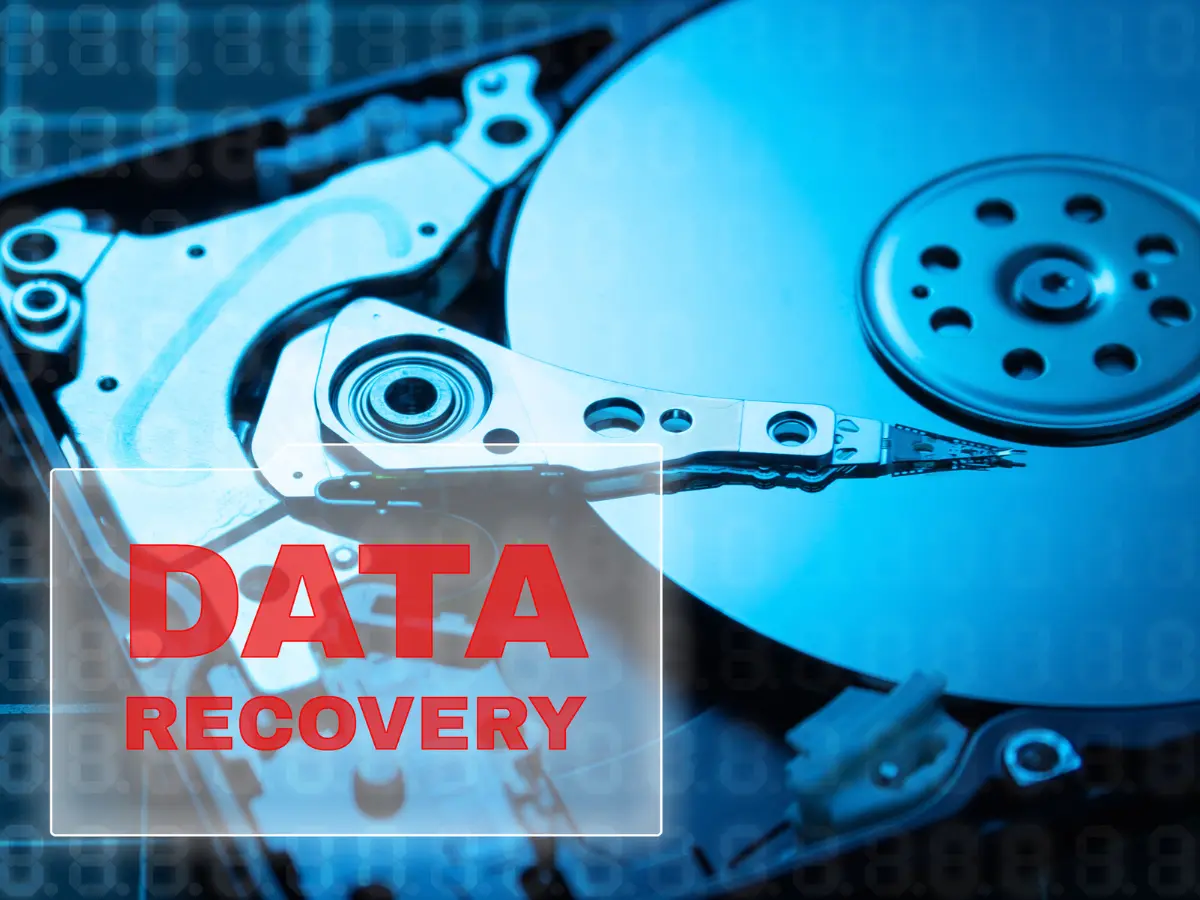Data loss is one of the most expensive and stressful challenges any business can face, and yet, it happens more often than you think. Whether it’s due to cyberattacks, hardware failure, human error, or natural disasters, losing critical data can cripple operations and erode customer trust.
That’s why having a solid Data Recovery Plan is very necessary.
In this guide, we’ll break down everything you need to know about creating and managing a reliable IT data recovery plan for your business in 2025 and beyond.
What Is a Data Recovery Plan?
A Data Recovery Plan is a documented strategy that outlines how your organization will respond to data loss events. It covers everything from how you’ll back up and restore lost files to who is responsible for executing recovery procedures.
In short, it’s your blueprint for bouncing back fast and minimizing downtime.
Why Every Business Needs a Data Recovery Plan
Nowadays, data is the heartbeat of any business. From customer records and financial data to project files and communication logs, your business runs on information. But what happens when that data is compromised, corrupted, or completely lost?
That’s where a Data Recovery Plan comes in; it is not a “nice-to-have,” but as a critical safety net every business needs. Here’s why it should be at the top of your priority list:
1. Cyberattacks Are No Longer a Matter of If, But When
Cyber threats like ransomware, phishing scams, and malware are growing in both frequency and sophistication. A single attack can encrypt or destroy years of valuable data in seconds. A strong data recovery plan ensures that if your systems are breached, you have a secure backup and a clear path to get things back up and running, without paying a ransom or losing important information.
2. Hardware Fails, Even the Best Ones
No matter how advanced your systems are, hardware failure is inevitable. Hard drives crash, servers overheat, and laptops get damaged. Without a recovery plan, a simple technical fault could result in irreplaceable data loss. But with a strategy in place, your business can recover quickly, often without missing a beat.
3. Natural Disasters and Human Error Happen
Whether it’s a fire, flood, power surge, or accidental file deletion, disasters don’t send a warning before they strike. A robust data recovery plan provides your business with the resilience it needs to weather the storm, minimizing the impact on operations, customers, and your bottom line.
4. Downtime is Costly And Reputation-Damaging
Every minute of downtime is a potential loss of revenue, productivity, and customer trust. A reliable recovery plan reduces downtime significantly, allowing you to restore data quickly and maintain service delivery, even in the face of disruption.
5. It Builds Confidence With Clients, Partners, and Regulators
In industries where data privacy and compliance are non-negotiable, having a documented recovery plan signals professionalism and preparedness. It shows your clients and stakeholders that their information is safe and that your business can be trusted to handle sensitive data responsibly, even during a crisis.
Key Elements of a Strong Data Recovery Plan
When disaster strikes, whether it’s a cyberattack, hardware failure, or accidental deletion, a solid data recovery plan can be the difference between quickly bouncing back or facing days (or even weeks) of downtime. But what exactly makes a data recovery plan effective? Here are the essential components every business should have in place:
1. Comprehensive Inventory of Digital Assets
Start by identifying everything that needs protection. This includes not just your most critical data, like customer information, financial records, and operational documents, but also the systems, applications, and hardware your business depends on. Knowing what you have makes it easier to prioritize what to restore first in a crisis.
2. Regular and Reliable Backups
Backups are the backbone of any data recovery plan. And they shouldn’t be a one-time thing.
You need to:
- Schedule backups consistently: Daily, hourly, or even real-time, depending on how critical the data is.
- Use multiple layers: Combine cloud storage for off-site safety with physical backups for quick local access.
- Automate the process whenever possible to avoid human error or forgetfulness.
3. Clear Recovery Time Objectives (RTOs)
Ask yourself: How long can our business survive without this system or data?
RTOs define how quickly specific systems, applications, or services must be restored after an incident. Not everything needs to come back online at the same time; prioritize based on business impact.
4. Defined Recovery Point Objectives (RPOs)
RPOs answer a slightly different question: How much recent data can we afford to lose?
If your RPO is 1 hour, then you need backups that run at least every hour. This metric helps you determine backup frequency and shapes your overall recovery strategy.
5. Well-Defined Roles and Responsibilities
In an emergency, confusion is the last thing you want. Your recovery plan should clearly outline:
- Who leads the recovery process?
- Who’s responsible for initiating backups?
- Who communicates with staff and stakeholders?
Every team member should know their role and be able to act fast without waiting for instructions.
6. Routine Testing and Simulated Drills
Lastly, having a plan is great; knowing it actually works is even better. Regularly run recovery drills to simulate various disaster scenarios. These tests will reveal weaknesses, highlight missing steps, and help your team practice under pressure. Update your plan based on the results to ensure it stays effective as your business grows or changes.
One thing you need to understand is that a strong data recovery plan isn’t just an IT concern; it’s a business survival strategy. With the right mix of tools, people, and procedures, you can safeguard your operations and maintain trust with customers, even when things go wrong.
Benefits of a Reliable Data Recovery Plan
In today’s digital world, your data is one of your most valuable business assets. Losing it, even temporarily, can cost you more than just money; it can damage your reputation, interrupt your operations, and leave your team scrambling. That’s why a reliable Data Recovery Plan isn’t just a nice-to-have; it’s a must. Here’s what you truly gain when your business is prepared for the unexpected:

1. Minimal Downtime, Maximum Productivity
A solid data recovery plan helps you bounce back quickly from disruptions like hardware failures, cyberattacks, or human errors. Instead of being stuck for hours, or even days, trying to retrieve lost files, you can restore what you need and keep business moving with little to no downtime.
2. Fast and Secure File Restoration
Time is money, especially during a crisis. A reliable plan ensures that critical files can be safely recovered without risking further data loss or corruption. This means faster access to important documents, systems, and tools, without compromising security.
3. Peace of Mind in High-Stress Moments
Emergencies are stressful enough. Knowing your data is protected and can be recovered quickly offers peace of mind to you and your team. It gives you confidence that, no matter what happens, your business won’t come to a screeching halt.
4. Stay Compliant with Data Privacy Regulations
Data protection laws like GDPR or the Nigerian Data Protection Act (NDPA) require businesses to safeguard customer and employee information. A dependable recovery plan helps you stay compliant, avoid penalties, and prove that you take data responsibility seriously.
5. Smarter, More Cost-Effective Disaster Management
Dealing with data loss without a plan can be expensive, from emergency IT support to lost revenue and reputational damage. With a proper data recovery strategy in place, you’re not just protecting your data, you’re cutting down the long-term costs of potential disasters.
Let Johan Consults Help You Build a Strong Data Recovery Plan
Creating a reliable and compliant data recovery plan might sound like a massive task, and truthfully, it is. Between data protection laws, IT infrastructure challenges, and ever-evolving cyber threats, it’s easy to feel stuck or unsure about where to begin.
That’s where Johan Consults steps in.
With years of proven experience in data security, IT infrastructure, and cyber resilience, Johan Consults helps businesses across Africa design and implement data recovery plans that actually work, not just on paper, but in real-life crises.
Whether you run a growing startup, a mid-sized company, or a large enterprise, our team tailors every solution to your unique business needs. We don’t believe in one-size-fits-all checklists. We believe in building systems that protect your business, your customers, and your reputation.
From setting up proper backup systems to ensuring compliance with local and international standards, Johan Consults walks with you every step of the way, so you can focus on growing your business without worrying about data loss.
Need help creating a foolproof Data Recovery Plan? Book a consultation with Johan Consults today, and let’s help you build a future-proof strategy that gives you peace of mind.









